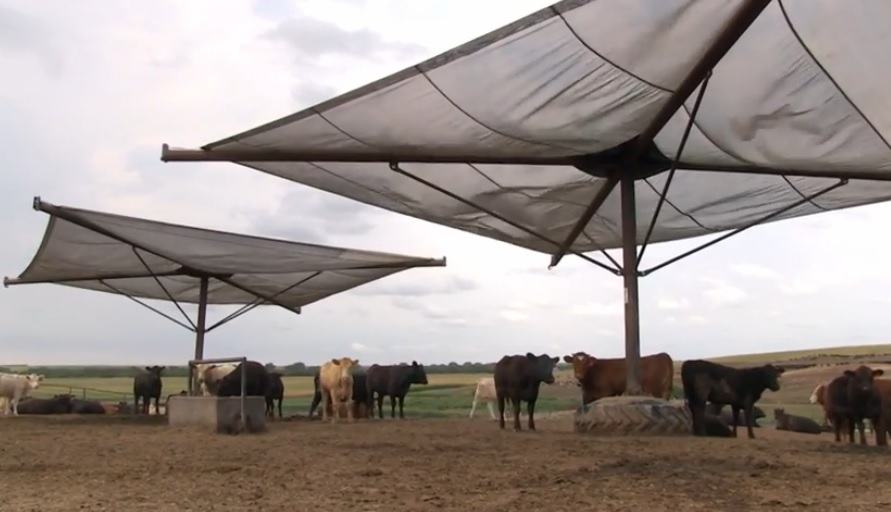 Hot. Humid. Still. Those weather conditions cause stress in the feedlot—for the animals, and the managers. Anne Burkholder of the Will Feed near Cozad, Nebraska said that combination of factors are concerning.
Hot. Humid. Still. Those weather conditions cause stress in the feedlot—for the animals, and the managers. Anne Burkholder of the Will Feed near Cozad, Nebraska said that combination of factors are concerning.
"Heat stress is something we worry about a lot, but we don’t deal with very often," Burkholder said.
A little planning now can help cattle feeders deal with those days later this year, says retired University of Nebraska Beef Extension specialist Terry Mader. He developed “best practices” to guide strategies for those few problem days that may come.
"If we are going to maximize the genetic potential for these animals, whether it's for performance or for carcass traits we really need to make sure that the animal is comfortable and content, and to do that we have to manage the environmental stress, so these mitigation strategies are designed to do that," Mader said.
The suggestions, available in the “Educator’s Corner” at C-A-B-partners-dot-com, help producers recognize the signs of, and conditions that typically cause heat stress. They also provide options for helping the animals through those days.
"If the nighttime temperatures get below 70 they can cool themselves off enough to be able to get through the next day," Burkholder said. "So what I look at as a feed yard manager is, are we gonna have prolonged nights where we don’t get that cool followed by days where we get very warm. Those are the times you worry about it. In those times we tend to split our animals out into more pens so that they have more access to water, more access to shade, more access to room to be able to cool themselves off a little better."
Burkholder is an example of what Mader emphasizes: choosing several of the strategies together is the best plan. Facilities upgrades are part of the key to greater comfort, but feeders can also shift the time of day they work or move cattle.
Click here to see more...